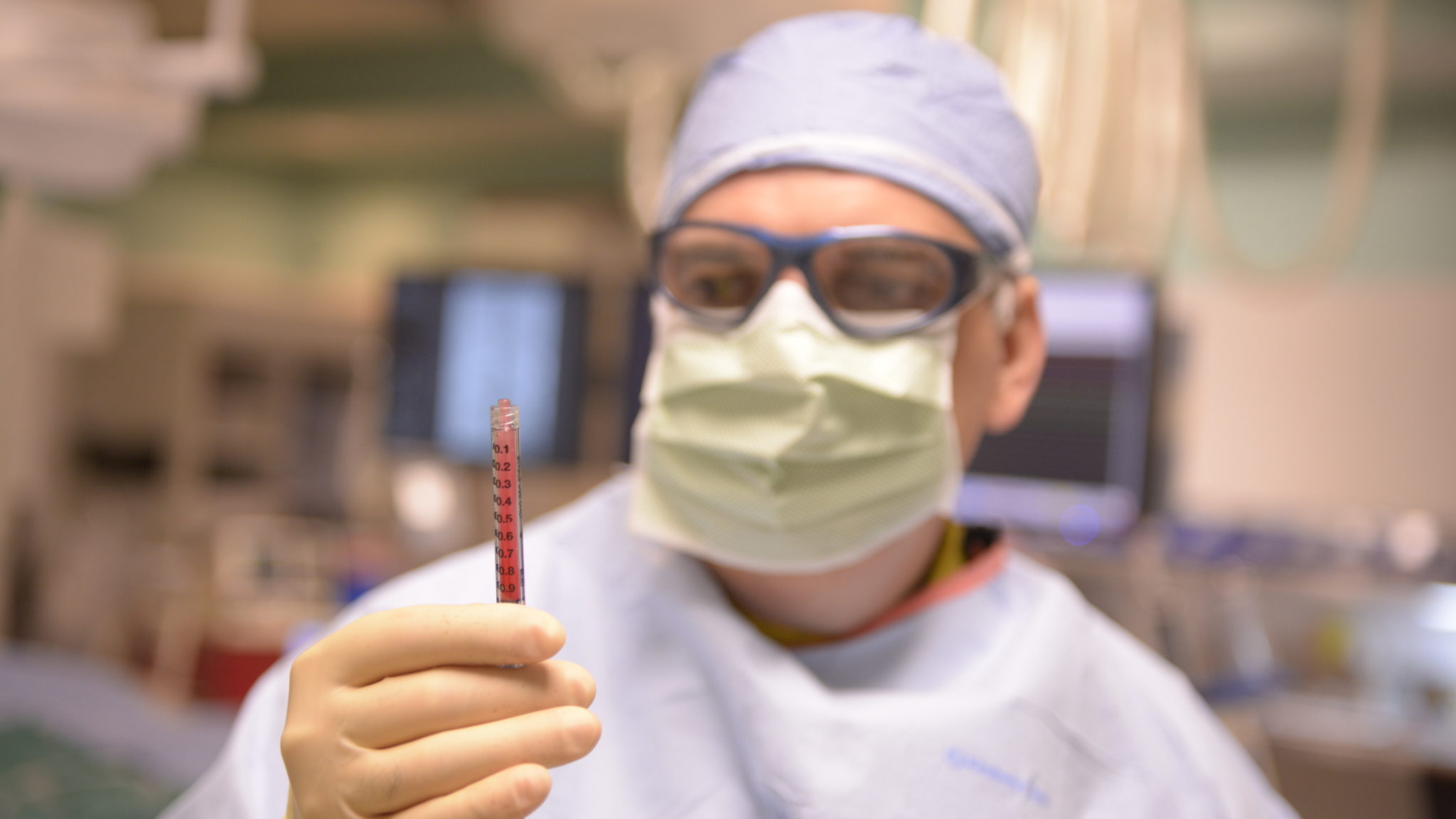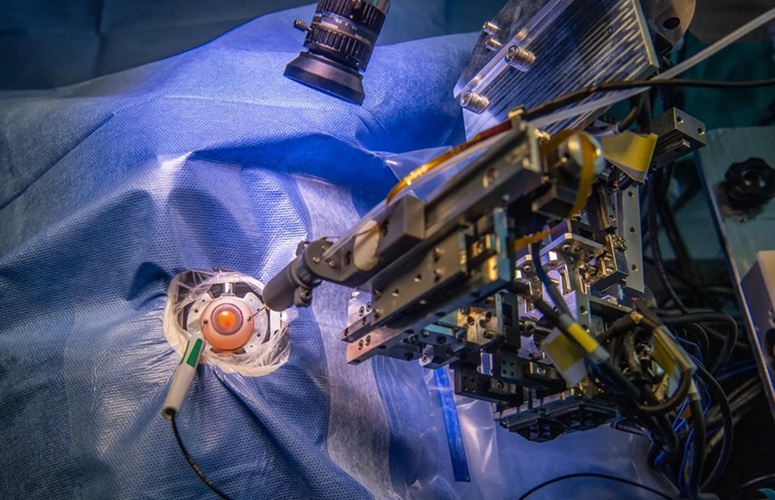New Cell Therapy Offers Potential Treatment Option for Patients with Chronic Heart Failure
|
By HospiMedica International staff writers Posted on 01 Mar 2023 |

Chronic heart failure is a progressively worsening condition caused by a decrease of the strength and pumping power of the heart. The current treatments are primarily aimed at reversing the negative effects of the complex neurohormonal pathways that are activated as a result of poor heart function. The activated pathways eventually contribute to the worsening of the disease and lead to more frequent hospitalizations. Despite advances in therapies targeting these pathways, mortality rates are still high. Now, the largest cell therapy trial to date in patients with chronic heart failure owing to low ejection fraction has shown that the therapy benefited patients by improving the heart’s pumping ability, as measured by ejection fraction, and reducing the risk of heart attack or stroke, especially in patients with high levels of inflammation. In addition, a strong signal was found in the reduction of cardiovascular death in patients treated with cells.
In the landmark clinical trial, physician-scientists at The Texas Heart Institute (Houston, TX, USA) showed that a special immunomodulatory cell type called MPC (mesenchymal precursor cells) developed by Mesoblast Inc. (Melbourne, Australia) has the potential to tackle one of the largest contributors to heart failure, inflammation. Participants in the trial were already making use of all available state-of-the-art heart failure drugs, which suggests that MPC cell therapy could work synergistically and add to the current medication in an effective way. The exceptional mode of action of MPC offers an alternative approach that has the possibility of significantly reducing the high mortality rate associated with heart failure.
The findings of beneficial long-term outcomes for patients with chronic heart failure due to lower ejection fraction and weakened pumping function are a major breakthrough in cell therapy for cardiovascular diseases. The results can help identify which heart failure patients with inflammation have the highest risk and likelihood to benefit from MPC therapy, and these findings will be further investigated in future studies. The groundbreaking trial has established the groundwork for potentially adding cell therapy to the treatment options available for heart failure.
“The results of DREAM-HF are an important step in understanding how cell therapy provides benefits in patients with chronic heart failure due to poor pump function,” said the study’s lead author, Dr. Emerson C. Perin, MD, Ph.D, Medical Director at The Texas Heart Institute. “The cells appear to work by reducing inflammation, increasing microvascular flow, and strengthening heart muscle. Locally, in the heart, the MPCs can protect cardiac muscle cells from dying and can improve blood flow and energetics. In large blood vessels throughout the body, the reduced inflammation resulting from the activation of MPCs may decrease plaque instability, which is what leads to heart attacks and strokes. The cells seem to have a systemic immune-modulatory and anti-inflammatory effect.”
Related Links:
The Texas Heart Institute
Mesoblast Inc.
Latest Critical Care News
- 'Universal' Kidney to Match Any Blood Type
- Light-Based Technology to Measure Brain Blood Flow Could Diagnose Stroke and TBI
- AI Heart Attack Risk Assessment Tool Outperforms Existing Methods
- Smartphone Imaging System Enables Early Oral Cancer Detection
- Swallowable Pill-Sized Bioprinter Treats GI Tract Injuries

- Personalized Brain “Pacemakers” Could Help Patients with Hard-To-Treat Epilepsy
- Microscopic DNA Flower Robots to Enable Precision Medicine Delivery
- Origami Robots to Deliver Medicine Less Invasively and More Effectively
- Improved Cough-Detection Technology Aids Health Monitoring
- AI Identifies Children in ER Likely to Develop Sepsis Within 48 Hours
- New Radiofrequency Therapy Slows Glioblastoma Growth
- Battery-Free Wireless Multi-Sensing Platform Revolutionizes Pressure Injury Detection
- Multimodal AI to Revolutionize Cardiovascular Disease Diagnosis and Treatment
- AI System Reveals Hidden Diagnostic Patterns in Electronic Health Records
- Highly Sensitive On-Skin Sensing Monitor Detects Vitamin B6 and Glucose in Sweat
- Artificial Intelligence Revolutionizing Pediatric Anesthesia Management
Channels
Surgical Techniques
view channel
Robotic Assistant Delivers Ultra-Precision Injections with Rapid Setup Times
Age-related macular degeneration (AMD) is a leading cause of blindness worldwide, affecting nearly 200 million people, a figure expected to rise to 280 million by 2040. Current treatment involves doctors... Read more
Minimally Invasive Endoscopic Surgery Improves Severe Stroke Outcomes
Intracerebral hemorrhage, a type of stroke caused by bleeding deep within the brain, remains one of the most challenging neurological emergencies to treat. Accounting for about 15% of all strokes, it carries... Read morePatient Care
view channel
Revolutionary Automatic IV-Line Flushing Device to Enhance Infusion Care
More than 80% of in-hospital patients receive intravenous (IV) therapy. Every dose of IV medicine delivered in a small volume (<250 mL) infusion bag should be followed by subsequent flushing to ensure... Read more
VR Training Tool Combats Contamination of Portable Medical Equipment
Healthcare-associated infections (HAIs) impact one in every 31 patients, cause nearly 100,000 deaths each year, and cost USD 28.4 billion in direct medical expenses. Notably, up to 75% of these infections... Read more
Portable Biosensor Platform to Reduce Hospital-Acquired Infections
Approximately 4 million patients in the European Union acquire healthcare-associated infections (HAIs) or nosocomial infections each year, with around 37,000 deaths directly resulting from these infections,... Read moreFirst-Of-Its-Kind Portable Germicidal Light Technology Disinfects High-Touch Clinical Surfaces in Seconds
Reducing healthcare-acquired infections (HAIs) remains a pressing issue within global healthcare systems. In the United States alone, 1.7 million patients contract HAIs annually, leading to approximately... Read moreHealth IT
view channel
Printable Molecule-Selective Nanoparticles Enable Mass Production of Wearable Biosensors
The future of medicine is likely to focus on the personalization of healthcare—understanding exactly what an individual requires and delivering the appropriate combination of nutrients, metabolites, and... Read moreBusiness
view channel
Philips and Masimo Partner to Advance Patient Monitoring Measurement Technologies
Royal Philips (Amsterdam, Netherlands) and Masimo (Irvine, California, USA) have renewed their multi-year strategic collaboration, combining Philips’ expertise in patient monitoring with Masimo’s noninvasive... Read more
B. Braun Acquires Digital Microsurgery Company True Digital Surgery
The high-end microsurgery market in neurosurgery, spine, and ENT is undergoing a significant transformation. Traditional analog microscopes are giving way to digital exoscopes, which provide improved visualization,... Read more
CMEF 2025 to Promote Holistic and High-Quality Development of Medical and Health Industry
The 92nd China International Medical Equipment Fair (CMEF 2025) Autumn Exhibition is scheduled to be held from September 26 to 29 at the China Import and Export Fair Complex (Canton Fair Complex) in Guangzhou.... Read more














